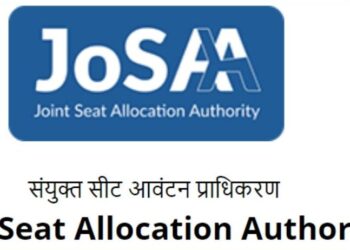The National Council of Educational Research and Training (NCERT) is gearing up to unveil a revamped curriculum for students in Classes 3 and 6, slated to be implemented from the academic session 2024-25.
Given that Class 3 marks the start of the preparatory phase and Class 6 marks the start of middle school, NCERT has developed a “bridge programme” for Class 6 and offered clear instructions for Class 3, aimed at schools that are associated with KVS, NVS, and CBSE.
Director Dinesh Saklani has urged the Central Board of Secondary Education (CBSE) to disseminate information regarding the suggested time allocations and to encourage schools to adapt their schedules according to local needs and contexts.
The education ministry told the media last month that although the NCERT textbook revision process was still in progress, only the updated textbooks for Classes 3 and 6 were probably going to be published for the 2024–2025 school year.
At that time, the official had said that the Class 3 textbooks were going through the editing, proofreading, and vetting procedures.
Class 1 and Class 2 textbooks have already been distributed in accordance with National Education Policy 2020 and the National Curriculum Framework (NCF).
NEW NCERT CURRICULUM AND TEACHING METHODOLOGY
The updated syllabus places a strong emphasis on a comprehensive approach to education and is in line with the National Curriculum Framework for School Education (NCFSE). It incorporates traditional disciplines like language, arithmetic, and science with the arts, physical education, and skill development.
The CBSE has been urged by NCERT to plan the schedule revision of schools in order to incorporate the holistic teaching approach. This means taking into account local settings and demands while integrating a variety of courses into a schedule that makes sense.
Based on the revised syllabi, activity books and textbooks will expose students to a variety of topic areas, boosting awareness of modern educational viewpoints and a thorough knowledge of the material.
NCF-SE advocates for a balanced school year with 34 working weeks and around 29 instructional hours per week. It suggests a five-and-a-half-day school week with Saturdays as half working days and emphasises the importance of 10 bagless days mandated by NEP 2020.
The goal of the NCERT method is to raise awareness about the changing nature of education among parents and the community at large, in addition to helping pupils adjust to the new curriculum.
Source:IT








 Finance
Finance






